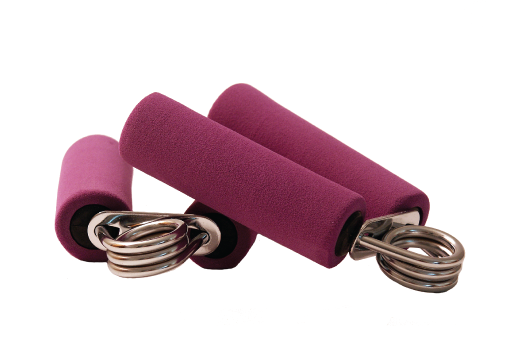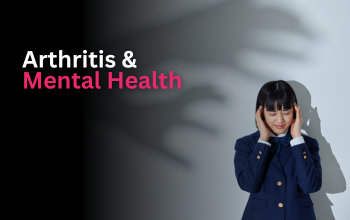The Arthritis Newsletter
Spring 2016Productivity Hacks for Arthritis
By Allison Brennan, Alexandria Klemm, Sharan Rai
We are three successful young women who conduct academic research while living with arthritis. Over the years we have learned a thing or two about how to be productive at work and school while handling the challenges we face with arthritis. We share these pearls of wisdom with you, with the hope they will help you to be healthy, happy, and productive.
| Productivity Hack | Example |
| Set your alarm earlier than usual | I know my morning stiffness can last anywhere from 30 minutes on a good day to an hour and a half or more on a bad day. I set my alarm to go off earlier in the morning to counteract the extra time spent trying to go from feeling like a “Tin Man” to a normal human being with movement. |
| Inform your professors or your employer (at your discretion) | While this may not be for everyone, I informed my professors and employers that something was going on medically with me. I did not go into great detail about my condition and only gave pertinent information. My employers were not thrilled but they understood in the end. They worked with me to create a schedule that worked around when I was able to best accomplish work. To inform my professors, I utilized the University’s Access and Diversity program, which specializes in helping students succeed in school who may have some barriers to overcome. |
| Buddy up | Sometimes morning classes and meetings can be difficult to get to when the morning stiffness is worse than usual or I’ve caught a cold from someone due to being immune compromised. To counteract potentially missing important information I asked someone in the same classes or were attending the same meetings to take notes for me. It was important to explain the situation ahead of time rather than scramble to find someone after the fact. |
| Know yourself and schedule accordingly | After being on my medications for a few months I’ve started to notice a pattern of feeling awful the day after my weekly biologic medication. As a result, I never book anything that requires driving or extra attention the day following my scheduled injection. I also know I am most productive from late-morning until just after dinnertime and will adjust my schedule accordingly. |
| Prioritize | I understand what I value: my personal well-being, physical fitness, work, close social relationships, casual social relationships, fun, relaxation, etc., and the order in which I prioritize these values (that will remain my secret!). If I know I have a particularly busy week at work, I will scale back my commitments in other areas like casual social relationships in order to maintain my commitments to the things I value more (e.g. fitness). |
| Get enough sleep | I have learned that sometimes I need lots of sleep, and sometimes I need very little. I try to listen to my body and take the time I need to recharge. I find that I’m better able to sleep at night when I keep active during the day. I also find that sometimes I need to sleep longer than my husband does and this used to make me feel lazy and guilty. I now embrace this difference between us and savour these extra hours of sleep that I need. |
Vary your scheduled activities/mental tasks |
I find that I’m able to accomplish more in a day when I schedule a variety of different activities. Some sitting, some standing, some running. Having a mixture of activities allows me to approach each task with a renewed energy. |
| Schedule breaks | I drink tea and coffee while working so that it keeps me getting up from my chair at least once an hour – both to make the tea and to go to the washroom! |
| Try “Do not disturb” mode on your phone | I’ve tried putting my phone on “do not disturb” mode – this will send all of your phone calls directly to voicemail (unless they’re in your favorites), as well as silence your text messages. I have found this let’s me focus on what I’m doing without any unwanted interruptions.(Note: this doesn’t affect your alarms, in case you have them set for medication reminders) |
| Take time off | I find it’s important to take a break from whatever I’m doing – for example, I’ll watch an episode (or five, let’s be honest) of my favorite show on Netflix. Also, make sure you take some sort of vacation time throughout the year – whether during spring break, summer vacation, or during the holiday season. This will help you recharge! |
| Be open to learning |
I’ve taken the time to think about what hasn’t worked for me in the past, allowing me to improve it, so that it works for me now. For example, I used to schedule medical appointments amidst already packed days, only to be completely emotionally drained and unproductive after. I now schedule medical appointments at the end of my day because I know I will need to take it easy afterwards.
|
Remember to take your medications |
Taking your medications is really, really important (https://www.arthritisresearch.ca/newsletter-take-your-meds), so make sure whatever you’re doing doesn’t overshadow that! I set an alarm on my phone, and put my pills next to my toothbrush or coffee cup so that I don’t forget. This helps me to make sure I take them even though I’m busy thinking about other things. |
While these productivity hacks work well for the three of us, you have to do what works best for your arthritis. What works best for you may mean altering our tips minimally or overhauling them completely! Just stay positive and keep trying new things until you find your groove and what works for you.




















































